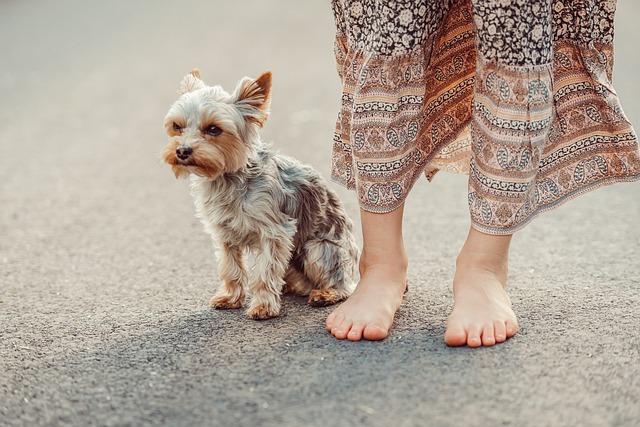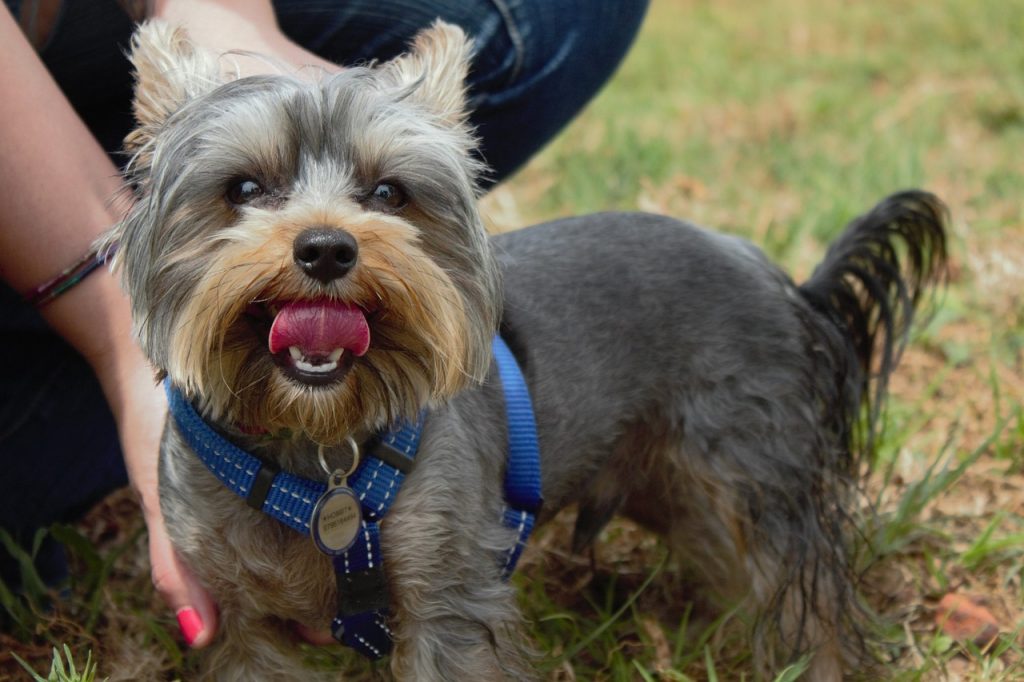When it comes to breeding, Yorkie pregnancy is a topic of interest for many owners. Understanding the stages of pregnancy week by week is crucial for providing the best care for your pregnant Yorkie. This article will guide you through each stage, offering insights into the care, nutritional needs, and medical attention required to ensure a healthy pregnancy for your Yorkie.

What do you need to know about Yorkie pregnancy?
Yorkie pregnancies, akin to those of other canine breeds, span roughly 9 weeks or 63 days. Early recognition of pregnancy signs is vital for ensuring appropriate care throughout this period. Initial indications of a Yorkie’s pregnancy may include noticeable behavioral changes, an increased appetite, and a slight gain in weight. These signs serve as early alerts for owners to begin preparations for the upcoming stages of pregnancy care.
Before even considering breeding or preparing for a Yorkie’s pregnancy, it is crucial to perform certain health checks to ensure the mother is in optimal condition for carrying and delivering puppies. These pre-pregnancy preparations should ideally include a visit to the veterinarian for a thorough check-up. This check-up will assess the Yorkie’s general health, including evaluations for genetic conditions, overall fitness, and any potential complications that could affect the pregnancy or the health of the puppies.
How many puppies a Yorkie bitch deliver?
Moreover, owners should be informed about the number of puppies Yorkie bitches can typically carry. Yorkies are a small breed, and their litter sizes correspondingly tend to be on the smaller side, usually ranging from 1 to 5 puppies. However, the average litter size is often about 3 to 4 Yorkie puppies. Due to their small size, Yorkies may encounter more challenges during pregnancy and delivery, underscoring the importance of veterinary supervision throughout the pregnancy and birthing process.
Ensuring the mother is in a healthy state before breeding includes vaccinations, parasite control, and addressing any underlying health issues. Nutritional status is another critical factor; a well-balanced diet not only supports the health of the pregnant Yorkie but also promotes the development of healthy puppies. Engaging in these preparatory steps significantly contributes to a smoother pregnancy and birthing process, ultimately fostering a healthier start for the newborn puppies.

Week-by-Week Guide to Yorkie Pregnancy
Week 1-2: Early Signs and Preparations
During the first two weeks, your Yorkie may show few outward signs of pregnancy. This is the time to visit the vet for confirmation and to discuss a care plan.
Veterinary Care and Nutrition
A balanced diet and proper veterinary care are fundamental from the get-go. Your vet might suggest dietary adjustments to support the pregnancy.
Week 3-4: Developmental Milestones
By weeks 3 and 4, you might notice some physical changes in your Yorkie, such as a slight enlargement of the abdomen and nipples.
Diet and Exercise Adjustments
Maintain a balanced diet rich in nutrients and adjust exercise routines to be less strenuous. Avoid unhealthy food for your Yorkie that is rich in artificial flavors and colors. Also, make sure you don’t feed your pregnant Yorkshire terrier with food that can cause painful stomach gasses.
Belly floating can be especially painful for pregnant dogs, so it’s better to avoid ingredients such as broccoli, cauliflower, pumpkin, beet pulp, certain legumes, and vegetables are high in fiber.
Week 5-6: The Growth of Puppies
The fetuses grow significantly during these weeks, and your Yorkie’s belly will become noticeably larger. Ultrasounds can usually detect puppy movements by this stage.
Preparing for Birth
Prepare a comfortable birthing area as the time approaches. Continue with regular, gentle exercise and nutritional support.
Week 7-8: Final Preparations and Signs of Labor
In the final stages, the Yorkie prepares for birth. Look out for nesting behavior and any signs of discomfort, indicating that labor is imminent.
When to Contact the Vet
Be prepared to contact the vet if there are signs of distress or if labor does not progress normally. Although it rarely occurs in Yorkies that they have to go through a C-section, if someting goes unplanned, C-section will be inevitable.
Aftercare for Mother and Puppies
Taking care of a Yorkie mother and her newborn puppies requires attention, love, and a bit of know-how. Here’s how to ensure the well-being of both the mom and her little ones during this critical time.
Post-Pregnancy Care for the Yorkie
After your Yorkie has delivered her puppies, it’s essential to give her the care she needs to recover and be a healthy mom. Place her bed in a quiet and calm area of the house. Your dog needs some time to relax and recover after the delivery.
READ ALSO: 7 Best Yorkie Beds For Yorkshire Terriers of All Ages
Here are some tips:
Nutrition: Boost her diet with high-quality, nutrient-rich food. Nursing requires a lot of energy, so consider foods designed for nursing dogs that will help her produce enough milk and recover her strength.
Rest: Make sure the mother has a quiet, comfortable place to rest and nurse her puppies. She’s going to be tired after giving birth, so it’s important she gets plenty of sleep without being disturbed too much.
Health Check: Schedule a postpartum vet visit to check her health and ensure there are no complications following the birth. The vet can also guide you on how to care for the puppies and when to bring them in for their first check-up.
Hydration: Keep fresh water available at all times. Nursing moms need to stay hydrated to keep up with the demands of feeding multiple puppies.
Bonding Time: Allow some peaceful time for the mother and puppies to bond. This is crucial for the puppies’ development and helps the mother adjust to her new role.
Monitor for Complications: Watch out for signs of postpartum complications in the Yorkie, such as excessive fatigue, refusal to eat, fever, or unusual discharge. Contact your vet immediately if you notice any of these symptoms.

Tips for Taking Care of the Puppies
Caring for newborn puppies involves a few key practices to ensure they grow up healthy and strong:
Warmth: Keep the puppies warm. Use a heating pad or a warm lamp to maintain a cozy temperature, especially if the mother leaves them alone for a bit.
Feeding: Monitor the puppies to make sure they are nursing properly. All puppies should have equal access to their mother’s milk. If any puppy seems weaker or less interested in feeding, consult your vet.
Cleanliness: Keep the birthing area clean to prevent infections. Regularly change bedding and clean up any messes.
First Vet Visit: Schedule a check-up for the puppies a few days after they are born. The vet will check their development and administer any necessary initial vaccinations.
Socialization: When the puppies are a few weeks old, start introducing them to various gentle handling and sounds. This early socialization is crucial for their development and helps them grow into well-adjusted dogs.
Caring for Yorkie puppies and their mother can be demanding, but it’s also incredibly rewarding. By following these tips, you’ll help ensure the health and happiness of the new mom and her adorable litter.
Yorkie Pregnancy: Wrapping up
If you’re currently living with a pregnant female yorkshire terrier, we hope that these tips will help you go through this stage easier. Taking care of a pregnant Yorkie and her puppies is no small feat—it’s a mix of love, patience, and a dash of worry, all rolled into one. But, watching that little momma nurture her mini-me’s and seeing those pups grow? Absolutely priceless. So, hats off to you for riding this rollercoaster.

